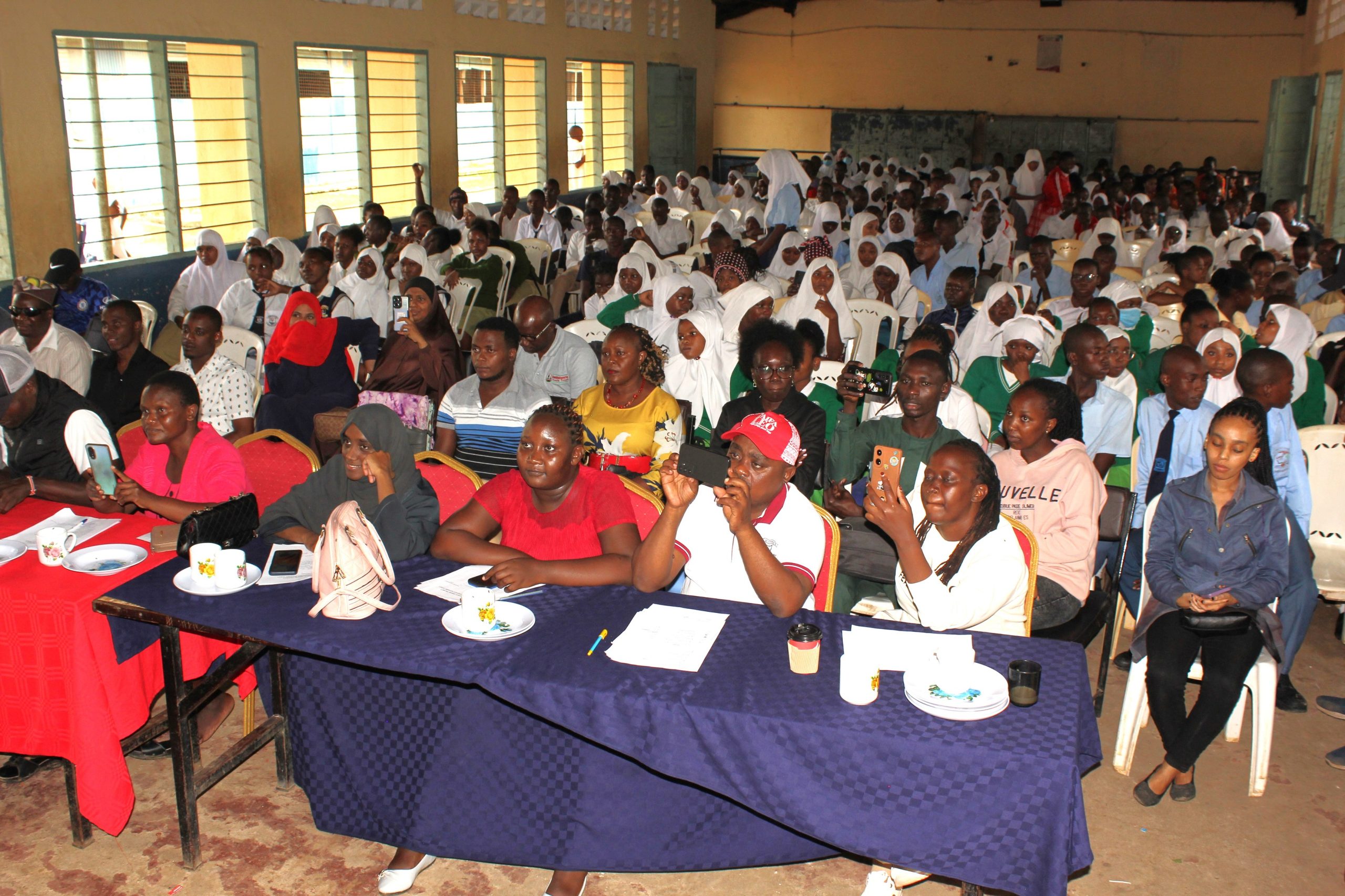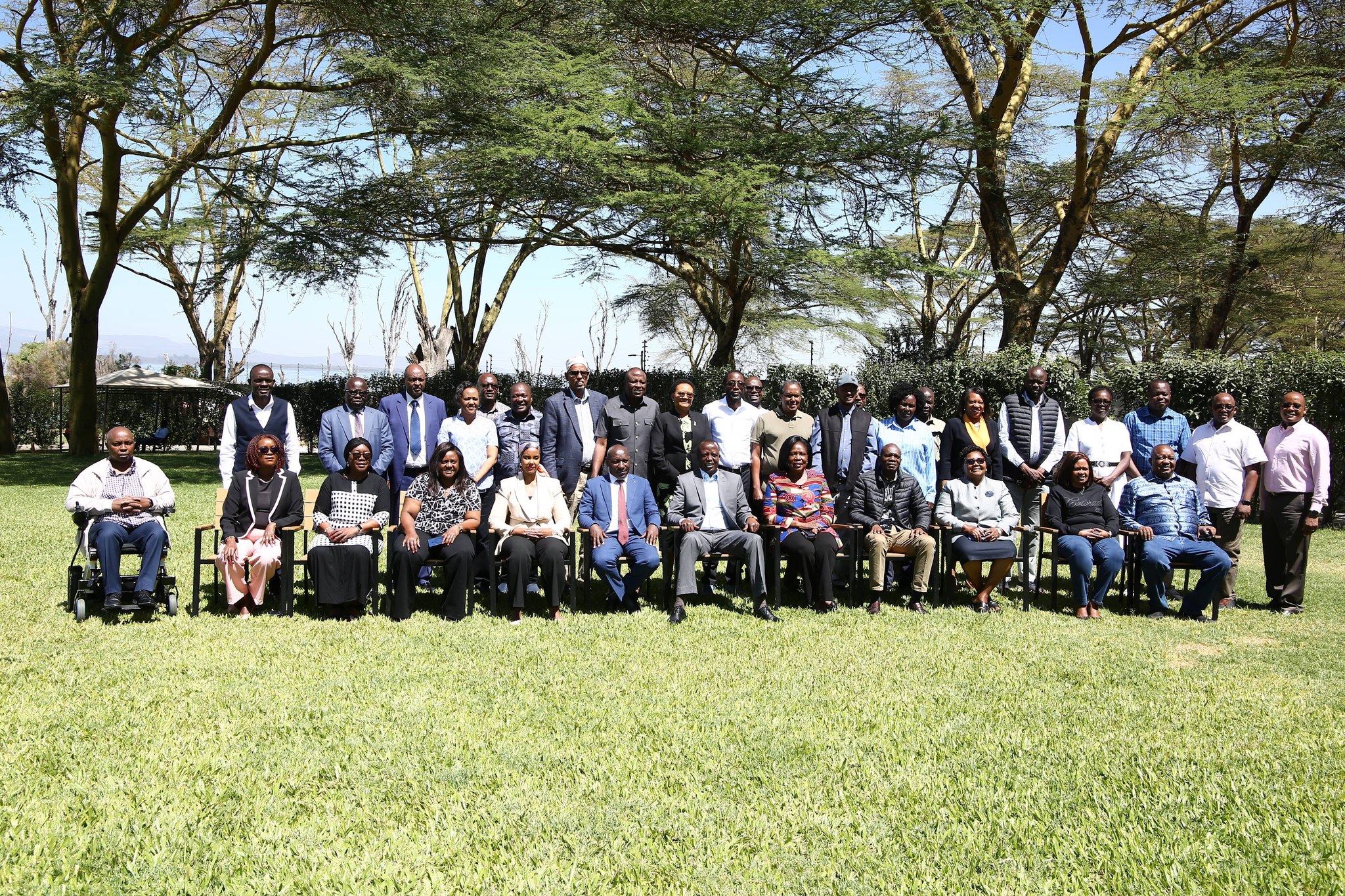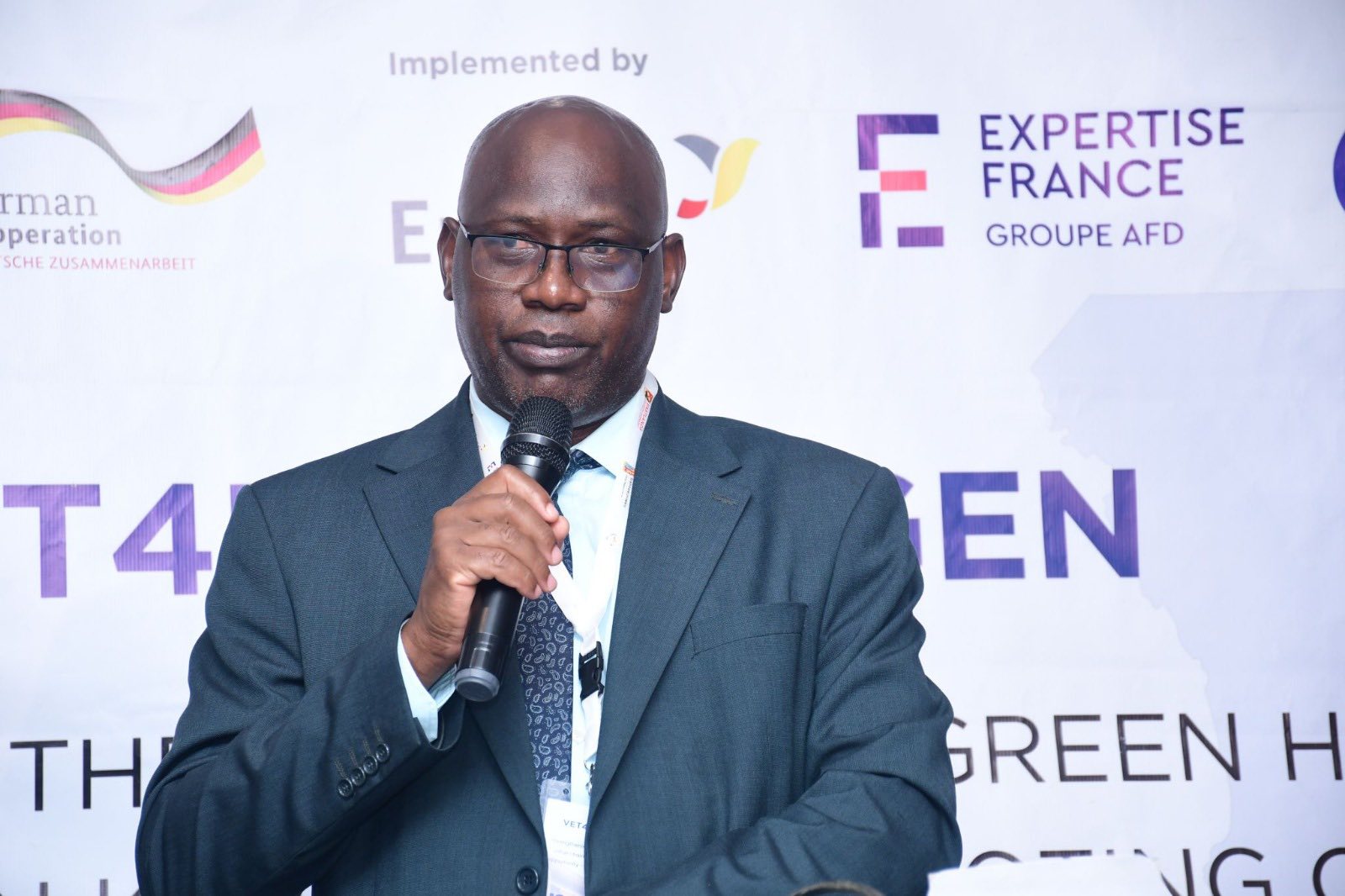In response to the alarming rise in drug abuse and crime among Generation Z youths along the Kenyan Coast, a new peacebuilding initiative is using the power of creative arts to foster social cohesion and harmony in schools across Mombasa and Kwale counties.
The Muslim Women Advancement of Rights and Protection (MWARP), CEFA, National Cohesion and Integration Commission (NCIC), among other stakeholders, have rolled out a vibrant program dubbed ‘Kujenga Amani’ that leverages drama, poetry, and spoken word to inspire peaceful coexistence and instil values of unity among learners.
It is a three-program which is conducted through the Schools’ Amani Clubs in the two coastal counties.
It targets young learners in both public and private secondary institutions, aiming to empower them as peace ambassadors in their communities.
Currently, the program is being implemented in approximately 24 secondary schools in Kwale and Mombasa.
The program comes at a time when many adolescents are increasingly falling prey to peer pressure, drug addiction, and criminal gangs.
According to the MWARP officer, Fahad Changi schools are a crucial entry point for early intervention, and creative expression provides a safe space for young people to voice their struggles and aspirations while building confidence and empathy.
“This initiative is not just about talent, it’s about transforming lives. We want to equip students with the right tools and values to say no to violence, tribalism, and drugs, and instead embrace diversity, dialogue, and peace,” he said.
According to Changi, the program has an element of inter-school competitions where students showcase emotionally powerful performances addressing real-life issues such as radicalisation, gender-based violence, drug trafficking, and political intolerance.
The officer said the performances are designed to spark meaningful conversations among students, their peers, teachers, and community leaders.
Changi said the peace campaign also includes mentorship programs, peer counselling, and forums that bring together students from different ethnic and religious backgrounds to promote mutual understanding and national unity.
He said the program also gives students an opportunity to explore and nurture their talents, channel their energy positively, and concentrate on building meaningful lives.
READ ALSO:
Revisiting the high school trauma in the wake of Alliance Girls chilling revelations
“When students discover their talents through drama and poetry, they gain confidence and begin to envision a brighter future for themselves. It helps them stay focused, avoid destructive behaviors, and grow into responsible citizens,” he said.
Mombasa Amani Clubs Coordinator Shakombo Mwangauri said the program is currently focused on the two coastal counties of Mombasa and Kwale due to their heightened vulnerability to radicalization, violent extremism, and drug abuse.
“These regions have been flagged as hotspots where youth are frequently targeted by extremist recruiters and criminal gangs. That’s why we are using creative platforms like drama and poetry to steer them away from such dangers and into positive transformation,” he said.
Mwangauri further revealed that similar peace and cohesion initiatives are underway in other coastal counties, tailored to address unique challenges facing local youths.
He said the broader goal is to plant seeds of national unity and resilience among Kenya’s young generation.
Mwangauri said the program has already begun to bear fruit, noting a significant reduction in cases of school rivalries and related tensions.
He said students are now more focused on collaboration and peaceful expression rather than competition and hostility.
He said that such positive outcomes are a testament to the power of arts-based peacebuilding, especially when introduced early in a learner’s life.
Mwangauri added that as part of motivation, participating students are often awarded various prizes to inspire others and encourage wider ownership of the peacebuilding initiative.
He said the awards range from certificates and trophies to mentorship opportunities and exposure in regional platforms, all aimed at reinforcing the values of unity, discipline, and resilience among the youth.
Mwanambeyu Girls High School teacher Abdalla Hamza praised the initiative, saying it has been instrumental in building the capacity of both teachers and students on matters of peace, tolerance, and social responsibility.
He said the program goes beyond drama and poetry to equip students with practical skills on how to nurture peace in and out of the classroom.
Hamza added that students are also actively involved in charity and community service as part of the initiative which include beach cleanups, visits to children’s homes, and participating in community-driven development projects.
A student at Mama Ngina Barbara Madina welcomed the initiative, calling on more schools to integrate peace education and creative arts into their extracurricular programs.
She said such proactive measures are key to breaking the cycle of violence and hopelessness gripping many coastal youths.
“As a student, I’ve seen how these artistic expressions give us a sense of purpose. It’s powerful,” she said.
According to her, the program has not only transformed her into a peace ambassador but also enhanced her public speaking skills and rekindled her leadership ambitions.
By Omar Shaban
You can also follow our social media pages on Twitter: Education News KE and Facebook: Education News Newspaper for timely updates.
>>> Click here to stay up-to-date with trending regional stories
>>> Click here to read more informed opinions on the country’s education landscape
>>> Click here to stay ahead with the latest national news.






